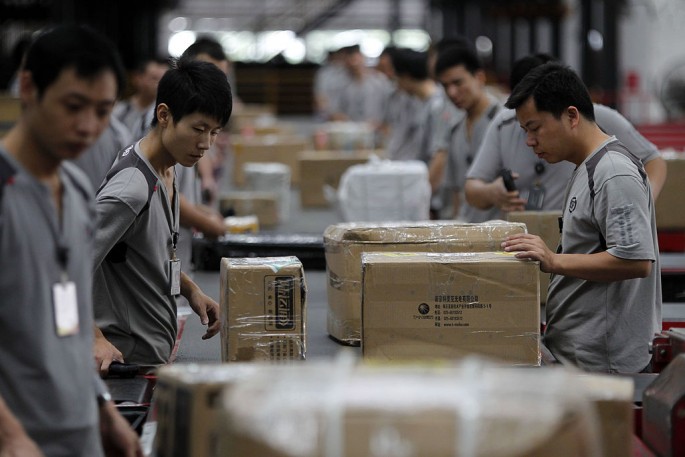If how unmarried Chinese spent money during the Nov. 11 Singles' Day in 2015 is an indicator, online shopping is expected to further boom in China in the coming years. Easily putting the sales figure of Amazon and eBay to shame, Double 11 sales in the county hit $19 billion (or 123 billion yuan).
That implies for every second on Singles' Day, more than $210,000 (1.4 million yuan) was being spent by unattached Chinese men and women, reports WomenofChina. Outside Double 11, online spending in China logged an enviable annual growth rate of 21 percent.
If that momentum is sustained, total online transactions in the Asian giant is expected to reach $6.5 trillion by 2020, estimates Ali Research and Boston Consulting Group.
Experts point to several factors behind the boom in personal consumption purchases done online in China. These include the growth of the middle and upper classes who comprise 81 percent of the increase in urban consumption. Most of them belong to the 18-to-35 age group and have overtaken members of the Baby Boomers when it comes to online spending.
Gao Hongbing, president of Ali Research, explains, "Online shopping is promoting transformation in China's consumer field. We find that online shops can provide various products and services which may not be available in physical stores, hence stimulating new consumer needs."
It helps that Alibaba, the e-commerce giant founded by Jack Ma, has its roots in China. One of the sites that belong to Alibaba is Taobao, one of the largest online marketplaces in the world.
According to Mashable, Taobao has gained a reputation as a shopping mecca for beauty afficionados where products are affordable. These include the $2.75 detangling hair brush, the 45-cent eye balancing massager, the $2.20 eyeliner template guide, the 30-cent silicone nose clip and the $2.50 anti-wrinkle and face-slimming belt which are the five hottest beauty products on the website.



























